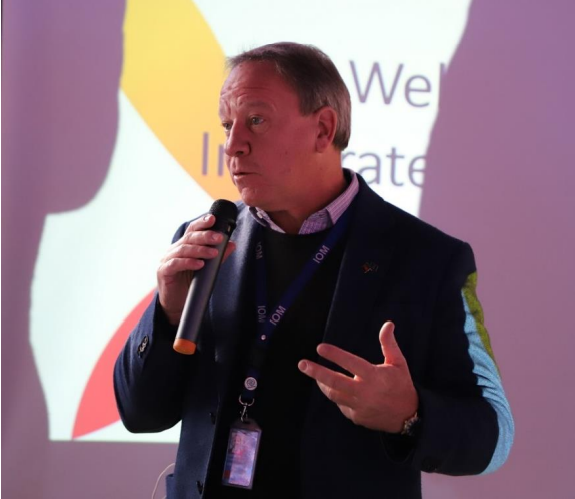 |
| Mr. Stuart Simpson, Deputy Regional Director for Asia- Pacific of the International Organization for Migration. (Source: IOM) |
Could you share some impressions about Vietnam's efforts in promoting legal, safe and orderly migration?
Vietnam is one of the few countries in the world that has a National Implementation Plan (NPA) for the Global Compact for Safe, Orderly and Regular Migration (GCM). I appreciate the active role of the Government of Vietnam in implementing the GCM through the plan approved by the Prime Minister on 20 March 2020.
This shows how effectively Vietnam has cooperated with countries and international organizations on international migration issues, and also shows the Government's commitment to better managing international migration.
In 2022, the amount of remittances sent to Vietnam will be more than 18 billion USD, making Vietnam one of the top three countries receiving the most remittances in the Asia-Pacific region and in the top 10 globally in terms of remittances. Therefore, Law No. 69/2020/QH14 on Vietnamese workers working abroad under contracts (or Law 69), which takes effect from January 1, 2022, plays a key role in ensuring the legitimate rights and interests of Vietnamese workers abroad, as well as ensuring fair recruitment of migrant workers.
In recent years, Vietnam has made serious efforts to create a transparent migration environment, protect the legitimate rights and interests of migrants, and take actions against human trafficking. A typical example is the implementation of the Program on Prevention and Combat of Human Trafficking for the period 2021-2025 and orientation to 2030, which includes new solutions and tasks to prevent and combat human trafficking in all fields.
How do you evaluate Vietnam's active participation in international commitments such as the GCM Agreement?
The GCM is the first intergovernmental negotiating agreement on migration and is an effective tool for countries to discuss how best to address migration challenges without compromising the rights of people and the sovereignty of states.
By actively contributing to the GCM development process and adopting the GCM Implementation Plan, Viet Nam has demonstrated its strong commitment to promoting common understanding, shared responsibilities and unity of purpose to make the GCM Agreement work for all.
The GCM Implementation Review Conference, jointly organized by IOM and the Ministry of Foreign Affairs in December 2022, attracted many delegates from government agencies at all levels, organizations, social groups and research institutes. Statistics released at the conference showed that 57 localities and 7 ministries and sectors of Vietnam have issued GCM Implementation Plans, a remarkable achievement.
In addition to this success, IOM continues to support Vietnam further to strengthen inter-agency cooperation in all areas of migration management, promote safe migration through specific data and share best practices in implementing the GCM Agreement, helping Vietnam achieve the Sustainable Development Goals (SDGs).
 |
| Female domestic migrant workers are one of the groups in need of support. Illustrative photo. (Source: baophunuthudo) |
IOM is currently implementing many projects in Vietnam to continue facilitating safe and orderly migration, helping Vietnam achieve the SDGs. Could you name some of the outstanding projects?
In Viet Nam, as the leading United Nations (UN) agency on migration, IOM works closely with government agencies, civil society, the private sector and migrants to find solutions to the problem, provide humanitarian assistance to migrants in difficulty and promote cooperation to address related challenges.
| "By actively contributing to the GCM development process and adopting the GCM Implementation Plan, Viet Nam has demonstrated its strong commitment to promoting common understanding, shared responsibility and unity of purpose to make the GCM Agreement work for everyone," said Mr. Stuart Simpson, Deputy Regional Director for Asia-Pacific at IOM. |
In support of Vietnam’s commitment to the Trafficking in Persons Programme 2021-2025 and Vision 2030, with support from the UK Home Office, IOM works with Government agencies and local authorities to realise their potential in reducing the vulnerability of individuals and communities to modern slavery (TMSV), including changing trafficking behaviour through communication, enhancing access to justice, and supporting recovery and reintegration with a victim-centred approach.
From 2018-2022, the project has built the capacity of more than 1,700 anti-trafficking officers, raised awareness of more than 2.93 million people on anti-trafficking and safe migration, and helped 1,680 victims access local employment opportunities and find pathways for manual labor migration.
IOM is proud to contribute to improving workers' access to essential skills such as digital, soft skills, employability, business skills, etc.; helping them transform the digital workplace; and promoting adaptability and resilience to change.
For this initiative, IOM collaborated with the Vietnam General Confederation of Labor (VGCL), the General Department of Vocational Education (Ministry of Labor, Invalids and Social Affairs) and Microsoft to develop and promote the e-learning platform congdanso.edu.vn. After nearly two years of operation, the online learning platform has benefited more than 13,000 Vietnamese learners (about 51% of whom are women), especially domestic migrant workers.
At the same time, IOM supports capacity building for law enforcement agencies at the central and provincial levels in the fight against human trafficking and smuggling, supports the reintegration of victims at the local level, and strengthens expertise, resources and personnel to develop and implement legal policies related to supporting victims of trafficking.
Typically, through the IOM project “Strengthening the capacity to combat human trafficking for frontline border officers” funded by the International Narcotics and Law Enforcement Network (INL), the US Department of State, the “Training on Human Trafficking and Victim Protection” for frontline border guards was developed. The document was approved by the Ministry of National Defense to train 436 officers in 12 border provinces, equipping them with the necessary knowledge and skills to effectively combat human trafficking.
We work to advocate for ethical recruitment to ensure the rights of migrant workers and improve their health, particularly in areas related to climate change. We hope to soon support Vietnam in strengthening its database on human trafficking and international migration. At the same time, we work with government partners to strengthen the legal framework for migration management in line with international standards, contributing to the promotion of regular, safe and orderly migration.
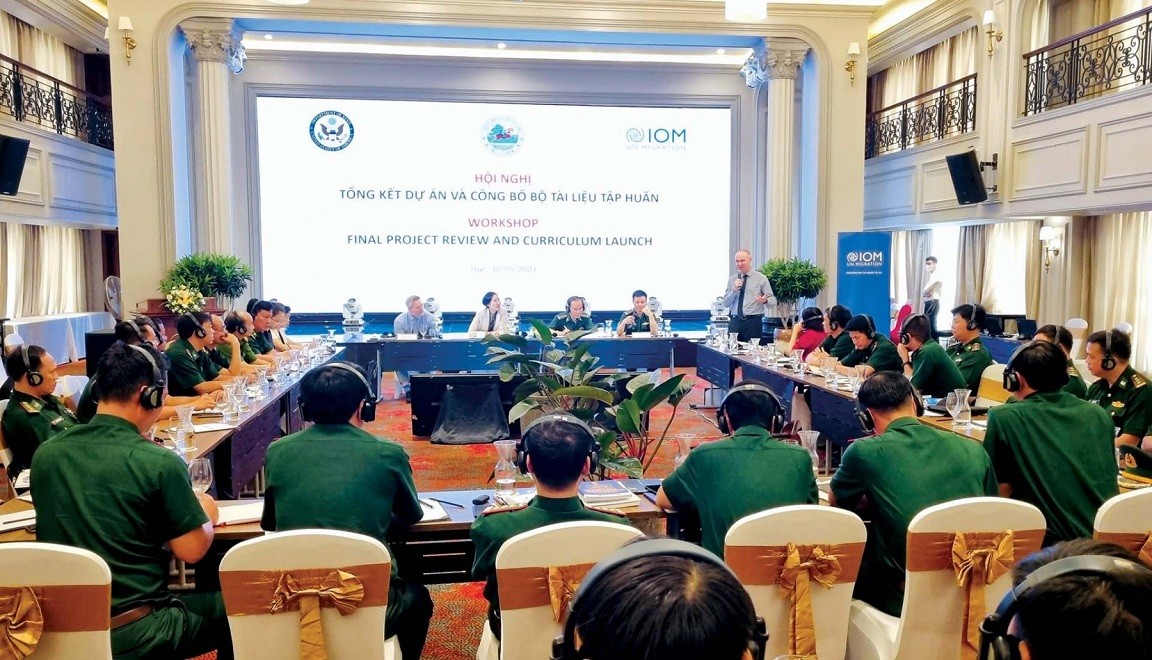 |
| Project Summary Conference and Launch Ceremony of Training Materials on Anti-Human Trafficking for Frontline Border Officers on May 30. (Source: IOM) |
Vietnam is currently a member of the UN Human Rights Council for the 2023-2025 term. What do you expect from Vietnam's contributions to this body to further promote migrant rights?
We congratulate Vietnam on its election as a member of the UN Human Rights Council for the 2023-2025 term. This is a great opportunity but also comes with great responsibilities and we hope that Vietnam will take the lead in implementing the highest standards of respect for human rights both domestically and internationally, including the rights of migrants.
This is also an opportunity for Vietnam to strive to become a leading country in advocating for human rights-based approaches to combating climate change and addressing migration issues, along with the responsibility to report on the implementation of the recommendations that Vietnam has received.
Vietnam is expected to represent the ASEAN region to share experiences in responding to human rights issues arising around the world, fully cooperating with the mechanisms of the Human Rights Council, a great opportunity for Vietnam to provide technical support and orientation for contributions to the region's SDGs.
The current climate change situation has had a significant impact on safe migration. In your opinion, what should we do to minimize the impact of climate change on migration?
The Intergovernmental Panel on Climate Change (IPCC) concluded that the impacts of climate change, combined with rapid population growth in areas vulnerable to climate disasters, are likely to lead to more migration in the future and that permanent population relocation may become increasingly necessary.
As one of the countries located in the Mekong River basin, Vietnam has been facing severe impacts of rising sea levels, saltwater intrusion, severe drought, land subsidence and other climate impacts.
According to the 2020 Mekong Delta Annual Economic Report, 1.3 million people have left the Mekong Delta in the past decade due to lack of arable land, jobs, income-generating opportunities, and natural disaster preparedness. In 2022 alone, there were about 353,000 internal displacements caused by natural disasters, and this number will continue to increase.
Climate change is increasingly affecting the lives and mobility of people, especially vulnerable populations that still depend heavily on the main livelihood. The 2019 Population and Housing Census showed that the Mekong Delta’s out-migration rate was 45%, the highest among regions in the country, more than double the national average out-migration rate of 20%.
| We need to create a mechanism for cooperation between government, business, civil society and other organizations to address this issue and raise awareness about migration in response to climate change impacts, ensuring that those most affected can make informed decisions to respond to the impacts of climate change. |
In the long term, forced migration can significantly impact a country's economy, safety and livelihoods, and threaten the lives of vulnerable groups such as the poor, women, children, the elderly, ethnic minorities and people with disabilities.
IOM has been conducting research on the potential for human migration due to climate change at national and regional levels. Several studies conducted by IOM in collaboration with other organizations have shown that voluntary migration can improve economic growth, well-being and climate resilience of local rural populations, migrants and those who remain.
However, migration and resettlement are still limited in development debates and agendas. Therefore, Vietnam should start promoting the integration of climate change, migration and resettlement issues and develop appropriate policies and strategies to mitigate the impacts of population displacement.
In response to climate impacts, migration can range from voluntary relocation as an adaptation strategy to forced relocation in the face of life-threatening risks. In this case, governments should support those who wish to remain in their homelands as long as possible and as safely as possible through investment in local disaster risk reduction and adaptation measures, including capacity building to support provinces in managing environmental and land risks.
Areas vulnerable to climate change should be prioritized to minimize the risk of displacement and other challenges associated with environmental degradation and disasters.
On the other hand, when people are forced to relocate to avoid the impacts of climate change or choose to migrate as a form of adaptation, the Vietnamese government should expand its access to protect these displaced individuals and groups.
Often, those most at risk are those least able to voluntarily relocate. Recovery and adaptation plans must consider accessibility, child protection, disability rights, gender equality, and the protection needs of vulnerable populations.
To ensure equity and inclusion, consultations with individuals and communities vulnerable to climate change should inform government responses and plans to address the impacts of climate change on migration. Any resettlement plans must respect and maintain households, communities, social cohesion, kinship ties and avoid family separation.
It is also important to invest in strengthening the capacity of specialized institutions to anticipate and adapt to different forms of climate change so that migration can be planned or, in some cases, avoided.
IOM is therefore ready to support Viet Nam in strengthening the capacity of communities to adapt to climate change and prevent natural disasters, focusing on the aspect of displacement management. Addressing the challenges of migration requires a collaborative effort across many sectors. We need to create a mechanism for cooperation between government, business, civil society and other organizations to address this issue and raise awareness about migration in the face of climate change, ensuring that those most affected can make informed decisions to cope with the impacts of climate change.
Source




![[Photo] Prime Minister Pham Minh Chinh chairs meeting to deploy overcoming consequences of storm No. 10](https://vphoto.vietnam.vn/thumb/1200x675/vietnam/resource/IMAGE/2025/10/3/544f420dcc844463898fcbef46247d16)
![[Photo] Students of Binh Minh Primary School enjoy the full moon festival, receiving the joys of childhood](https://vphoto.vietnam.vn/thumb/1200x675/vietnam/resource/IMAGE/2025/10/3/8cf8abef22fe4471be400a818912cb85)


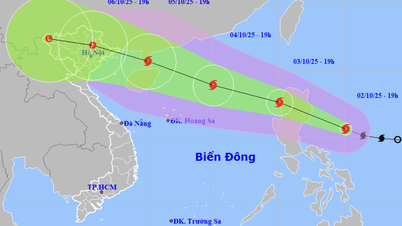

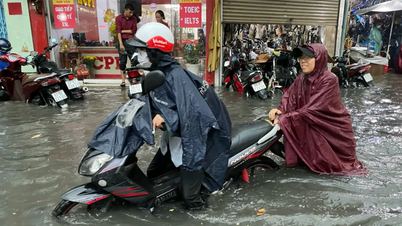

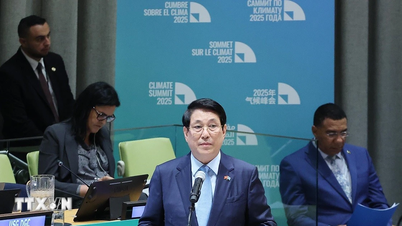



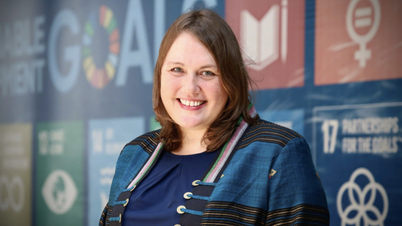

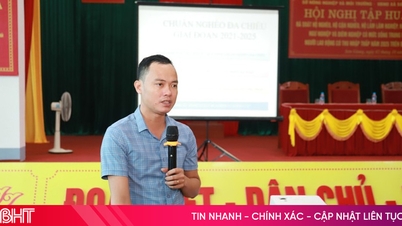

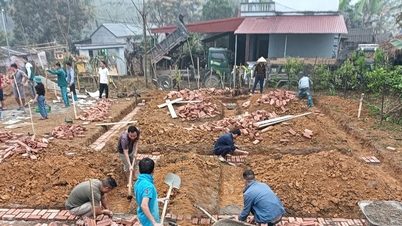

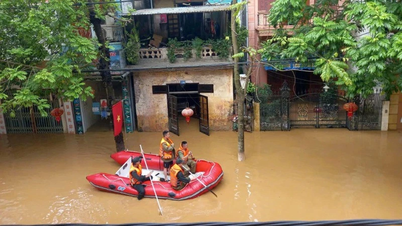

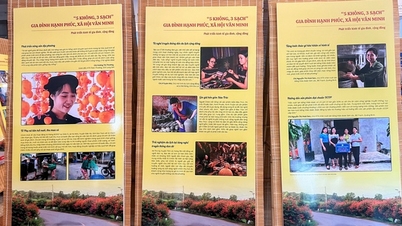

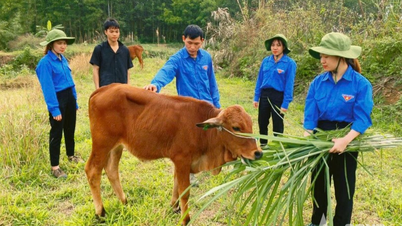

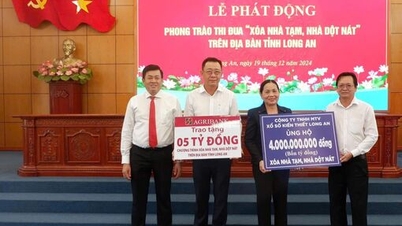





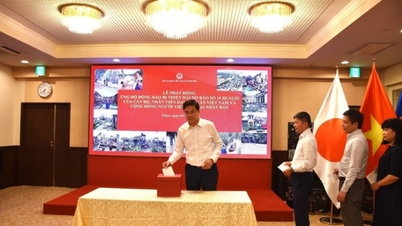
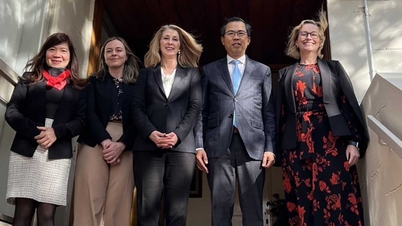
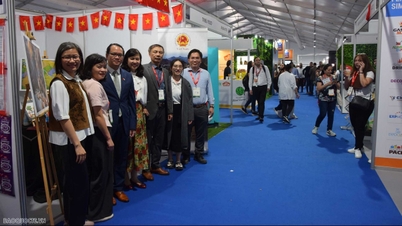
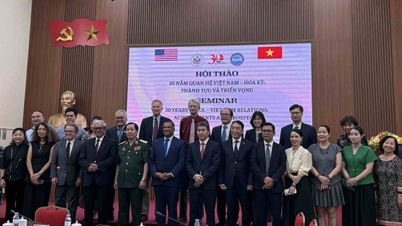
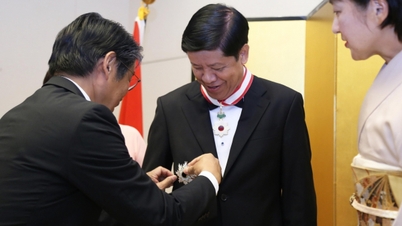
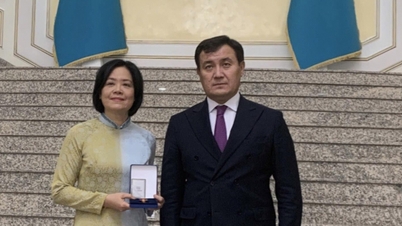
















































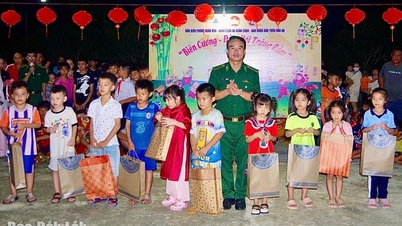
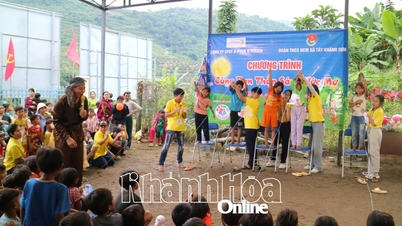

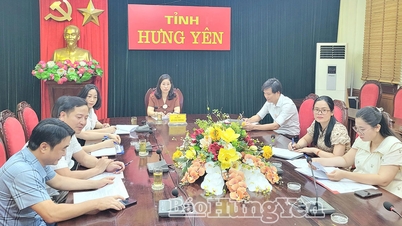

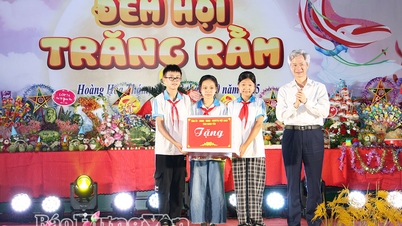
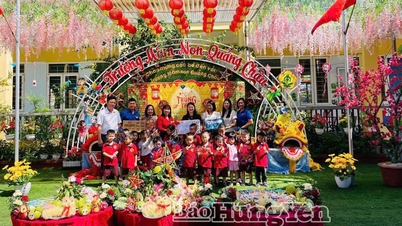











Comment (0)